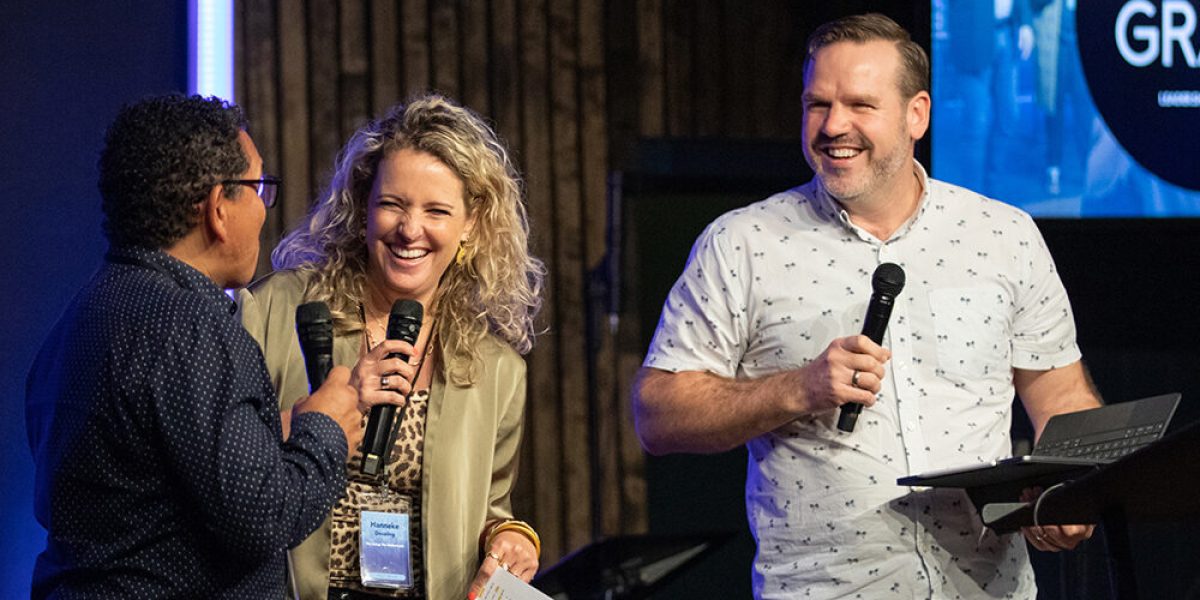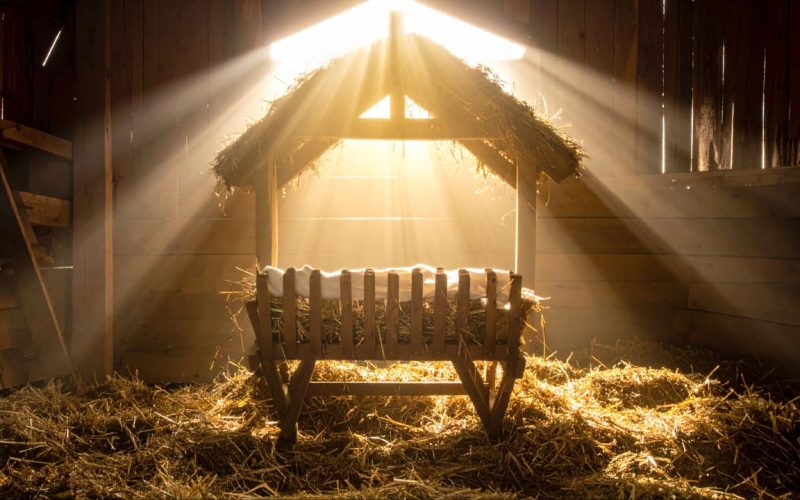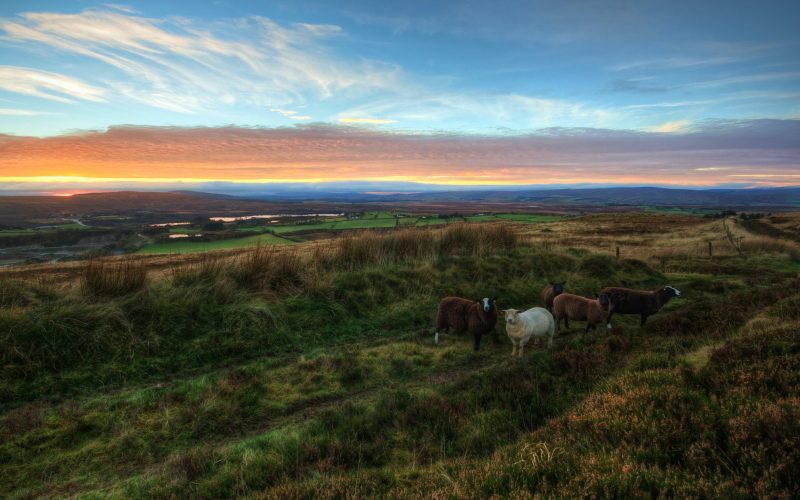The unbreakable power of a threefold cord
There’s an old African proverb that has echoed through generations, carrying a profound and simple truth: “If you want to go fast, go alone. If you want to go far, go together.” We live in a culture that often celebrates the lone wolf, the self-made individual who blazes a trail at lightning speed. It’s the “go fast, don’t die” mentality, a thrilling, high-stakes race against the clock. And for a short sprint, perhaps that works. You can make quick progress, unencumbered by the pace or opinions of others. But a life, a true journey of purpose and meaning, is not a sprint. It’s a marathon, filled with treacherous terrain, unexpected storms, and moments where our own strength simply isn’t enough. In those moments, we discover the deeper truth of the proverb: speed is temporary, but endurance happens together. To go far, to build something that lasts, to weather the inevitable storms, we need to go together. We were never designed to be “islands to ourselves.” Sure, there are times that we must each “sprint,” taking advantage of an opportunity that will quickly pass, but this does not last forever. We were created for connection, for community, for the kind of relationships that don’t just help us survive, but empower us to thrive. This is the power of our church community.
The forgotten power of “we”
The wisdom of community isn’t a new-age concept; it’s an ancient truth woven into the very fabric of scripture. In Ecclesiastes 4:9-12, the writer observes, “Two are better than one, because they have a good reward for their labor. For if they fall, one will lift up his companion. But woe to him who is alone when he falls, for he has no one to help him up.” This is more than just practical advice; it’s a spiritual principle. In the business world, it is called synergy—the idea that one plus one can equal three. It’s that magical, almost inexplicable dynamic where the combination of two people’s efforts produces a result far greater than the sum of their individual parts. It requires the right fit, the right connection, but when it happens, it’s like a chemical reaction. It’s what you might call a catalytic relationship.
A catalyst doesn’t just add to a reaction; it enables it, speeds it up, and makes something new possible. I’ve experienced this firsthand. I have friends in my life that, when we get together, it feels like the Kingdom of God just… happens more. It’s not a competition, but a beautiful collaboration where we spur one another on to greater things. I remember one day, walking through a crowded mall with one of these friends. We ran into someone we knew who was going through a tough time and asked for prayer. Right there, amidst the hustle and bustle of shoppers, we began to pray. I would pray, then my friend would add something in prayer and take it to the next level, and it was like a fire catching kindling. We started getting words of encouragement for this person, and then, amazingly, for total strangers walking by. We just started praying for random people, speaking life and hope into their day. Honestly, I would never have done that by myself. Left on my own, I might have just kept my head down and hurried to my car. But together, something bolder, more powerful, was unlocked. That is the power of “we.”
The friend who will rip the roof off
We all need help sometimes. As much as we hate to admit it, we are not always going to be strong. Life has a way of knocking us down, sometimes so hard that we feel paralyzed, unable to get back up on our own. It’s in these moments that the quality of our friendships is truly revealed. The Bible gives us a stunning example of this in the book of Mark chapter 2. The story is about a man who was physically paralyzed, completely helpless, and confined to his bed. He heard that Jesus, the great healer, was in a nearby house, but there was a problem. The house was so packed with people, so dense with bodies craning to see and hear, that there was no way to get through the door. For the paralyzed man, this was a dead end. His hope was just a few feet away, but completely inaccessible. But he wasn’t alone.
This man had four friends. Four individuals who refused to accept defeat. When they saw the impenetrable crowd, they didn’t just shrug and go home. They didn’t tell their friend, “Sorry, we tried.” Instead, they looked at the situation and came up with a radical, audacious, and—frankly—destructive plan. They carried their friend, bed and all, up to the roof of the house. And then, they started tearing it apart. Can you imagine the scene? The dust, the falling debris, the shock of the people inside as a hole in the ceiling began to appear. These friends were literally ripping the roof off to get their friend into the presence of Jesus. And the scripture says something remarkable: “When Jesus saw their faith…” Not the faith of the paralyzed man, but the faith of his friends. He responded to their collective, relentless belief. He healed the man, not just because the man needed healing, but because his friends were willing to do whatever it took. This story forces us to ask a profound question. First, do you have friends in your life who would rip the roof off for you? But perhaps the more important, more challenging question is this: Are you the kind of friend who would rip the roof off for someone else? Are you willing to lend your faith when theirs is weak? Are you willing to carry them when they can’t walk and break through barriers to get them to a place of hope and healing? That is the call of true community
The blueprint for unbreakable bonds
The imagery in Ecclesiastes 4 culminates in a powerful metaphor: “a threefold cord is not quickly broken.” It’s a simple image with profound depth. I was talking to an arborist recently, a man who works with trees and ropes for a living, and he shared something fascinating. He explained that if you take three separate strands of rope, they each have their own individual breaking strength. But when you braid those three strands together, the resulting rope is exponentially stronger. It’s not just the sum of the three parts; it’s more. Why? Because of the friction, the way the strands press against each other, holding each other in place. The very tension between them becomes their collective strength. This is the blueprint for the relationships we are called to build. We are meant to be interwoven with one another, holding each other up, strengthening each other through the friction and pressures of life.
This threefold cord represents the perfect structure for a powerful life: God, you, and others. When these three strands are woven together, they create something resilient and beautiful. The first and most crucial strand is our relationship with God. He is the author of relationships, the one who designed us for community. The second strand is our own self, walking in health and purpose. The third strand is our connection to others—our family, our friends, our church community. When we allow God to be the central, weaving force in our lives, our connections with others become stronger. We stop being isolated individuals and become part of a powerful, interconnected whole. We become the holding power for one another, standing together, refusing to let anyone fall without a hand to lift them up. This is the strength God designed for us, a strength that can withstand any storm.
The hidden danger that weakens your connections
The arborist shared another piece of wisdom that struck me as well. He said, “A dirty rope is a weak rope.” He explained that when dirt, grit, and grime get into the fibers of a braided rope, they don’t just sit there. They begin to grind against the fibers, creating internal friction that slowly, invisibly, cuts and wears the rope down from the inside out. A rope that looks strong on the surface can be dangerously weak because of the hidden dirt within. What a powerful picture of what sin does to our relationships. Sin—the relational dirt of gossip, lies, unforgiveness, selfishness, and pride—gets in between us and God, and in between us and other people. It starts to eat away at the fibers of trust and intimacy, weakening the very bonds that are meant to give us strength.
This “dirt” can take many forms. There is sin against God, when we choose our own way over His, which weakens our primary connection. There is relational sin against others, which cuts away at the fabric of our community. And there is even sin against ourselves, choices that degrade our own bodies and souls, weakening our individual strand. So how do we deal with this dirt? How do we clean the rope and restore its strength? The answer is simple, though not always easy: repentance. Repentance literally means to stop, turn around, and go the other way. It’s about taking responsibility. So often, we are experts at making other people fully responsible for every challenge in relationships. But the only common denominator in all of your difficult relationships is you. Repentance is when we stop, look at our part, and say, “I was wrong. Will you forgive me?” We ask forgiveness from God, from others, and just as importantly, we learn to forgive ourselves. When we refuse to forgive ourselves, even after God has forgiven us, it’s like saying our judgment is higher than His. Repentance and forgiveness cleans the rope. It removes the grit and allows the fibers to hold together in strength once more.
The friend who sticks closer than a brother
Ultimately, the strength of every cord in our lives depends on the integrity of the central strand: this is our connection to God. This isn’t about religion, a system of rules, or just showing up to church. It’s about a living, breathing relationship with the one who created us. Jesus himself redefined friendship. In John 15:13, He said, “Greater love has no one than this, than to lay down one’s life for his friends… No longer do I call you servants… but I have called you friends.” A servant follows orders, but a friend is brought into the inner circle. A friend shares confidences, hopes, and dreams. Jesus invites us into that kind of relationship. He is the friend who sticks closer than a brother, the one who demonstrated the ultimate “rip the roof off” love by laying down his very life for us.
The story of humanity is a story of a broken relationship. God created us for perfect harmony with Him, a world with no dirt in the rope. But mankind was deceived, choosing to follow our own thinking, and that perfect bond was severed. Yet God, in his incredible love, never stopped pursuing us. He sent messenger after messenger, and finally, He sent His own Son, Jesus. Jesus came to be the ultimate friend, to take all the dirt—all the sin of our lives—upon himself on the cross. He took the punishment we deserved so that the rope could be made clean and our relationship with God could be restored. All we have to do is accept this incredible gift. It’s a simple turn and surrender of our own way, submitting to Him as the Lord of our lives. When we weave that divine strand of Jesus into the core of our being, every other relationship starts to be transformed. He becomes the holding power, the unbreakable center of the threefold cord. That is the invitation for every one of us: to let the greatest friend we could ever have become the very center of our lives.
Hear this whole message here.






